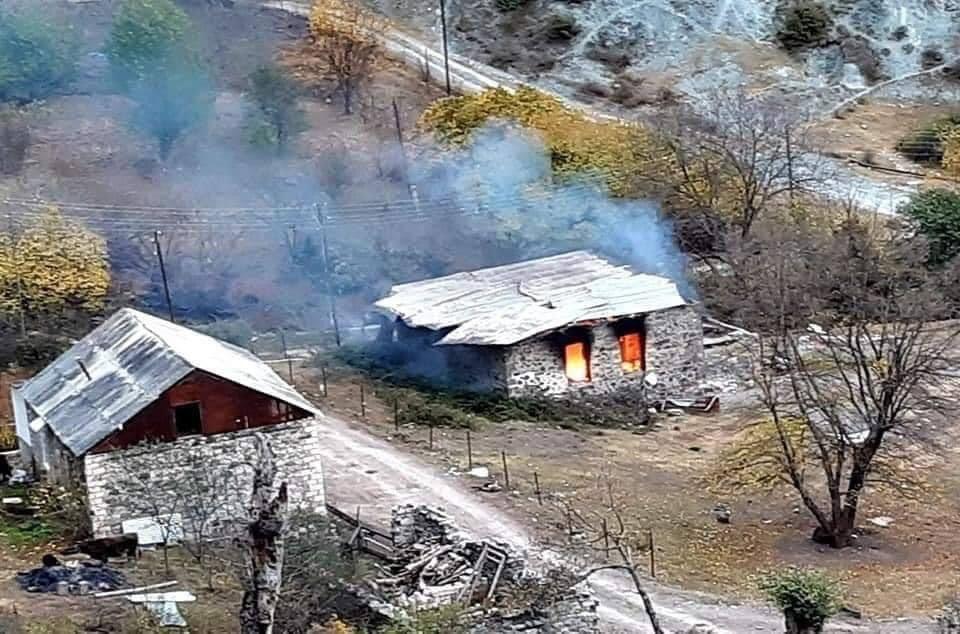Last week, Azerbaijan postponed taking control of a territory ceded by Armenian forces in a cease-fire agreement but denounced civilians leaving the area for burning houses and committing what it called “ecological terror.” The Los Angeles Times reported.
The cease-fire ended six weeks of intense fighting between Azerbaijan and Armenia over the Nagorno-Karabakh region and territories outside its formal borders that had been under the control of Armenian forces since 1994. The agreement calls for Azerbaijan to take control of the outlying territories. The first, Kelbajar, was to be turned over on Sunday.
However, Azerbaijan agreed to delay the takeover until November 25 after a request from Armenia. Azerbaijani presidential aide Hikmet Hajiyev said worsening weather conditions made the withdrawal of Armenian forces and civilians difficult along the single road through mountainous territory connecting Kelbajar with Armenia.
After the agreement was announced early Tuesday, many distraught residents preparing to evacuate set their houses ablaze to make them unusable to Azerbaijanis who would move in.
According to civil activists, this goes to show the true intentions of the ethnic Armenians which are now fleeing the region.
“When our civilians left Karabakh they just locked the door, and they kept the keys of their homes, intended to return to their homes one day. But what we see now is how Armenians are burning down houses, forests, cutting down trees.” Baku-based activist Orkhan Sharif tells Conflict & War Report.
“When the host leaves his house, he just locks the door because he will return, but when a thief leaves a house, he burns everything in order to cover his traces.”
Prior to a separatist war that ended in 1994, Kelbajar was populated almost exclusively by Azerbaijanis. But the territory then came under Armenian control and Armenians moved in. Azerbaijan deemed their presence illegal.
“The placement and settlement of the Armenian population in the occupied territory of the Kelbajar region was illegal,” Hajiyev said. “All illegal settlements there must be evicted.”
The imminent renewal of Azerbaijani control raised wide concerns about the fate of Armenian cultural and religious sites, particularly Dadivank, a noted Armenian Apostolic Church monastery that dates to the 9th century.
Azerbaijani President Ilham Aliyev assured Russian President Vladimir Putin, who negotiated the cease-fire and was sending about 2,000 peacekeeping troops, that Christian churches would be protected.
“We knew that we would return the land which belongs to us. Armenian argues that there were ancient monasteries so therefore this land belongs to them. But they didn’t accept the fact that these ancient monasteries belonged to ancient Azerbaijan before, when Islam wasn’t practiced.” Sharif also points out.
The cease-fire agreement and cession of territories was a strong blow to Armenia and prompted protests against Prime Minister Nikol Pashinyan, the Sydney Morning Herald noted.
Last week, Artur Vanetsyan, the leader of a small centre-right party who formerly headed the national security service, was arrested on suspicion of plotting to assassinate Pashinyan. He was released from custody last Sunday and it was unclear if the charges against him would stand.
